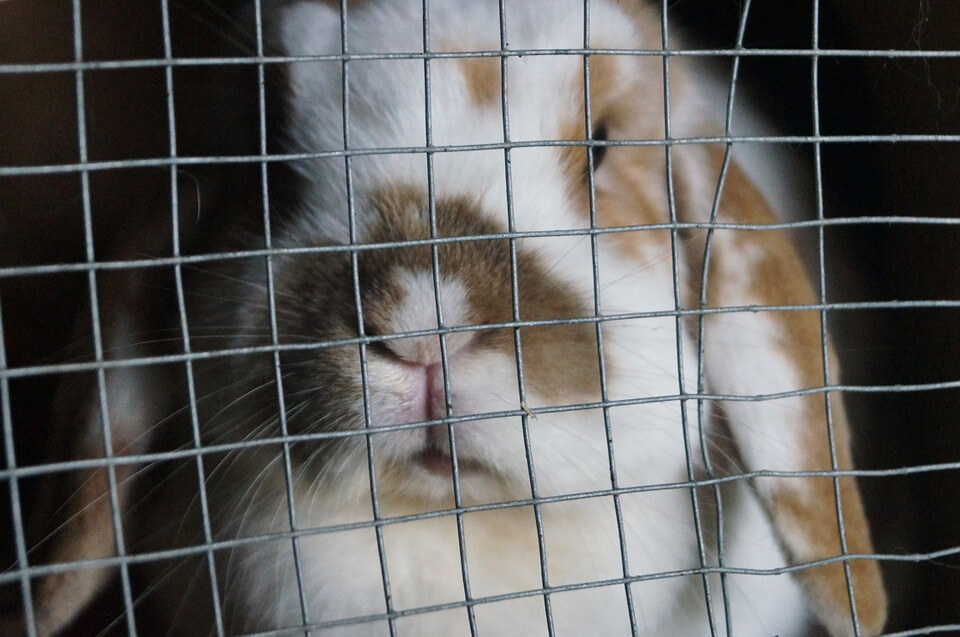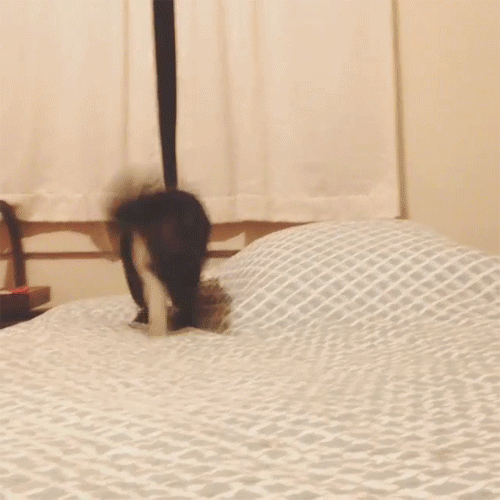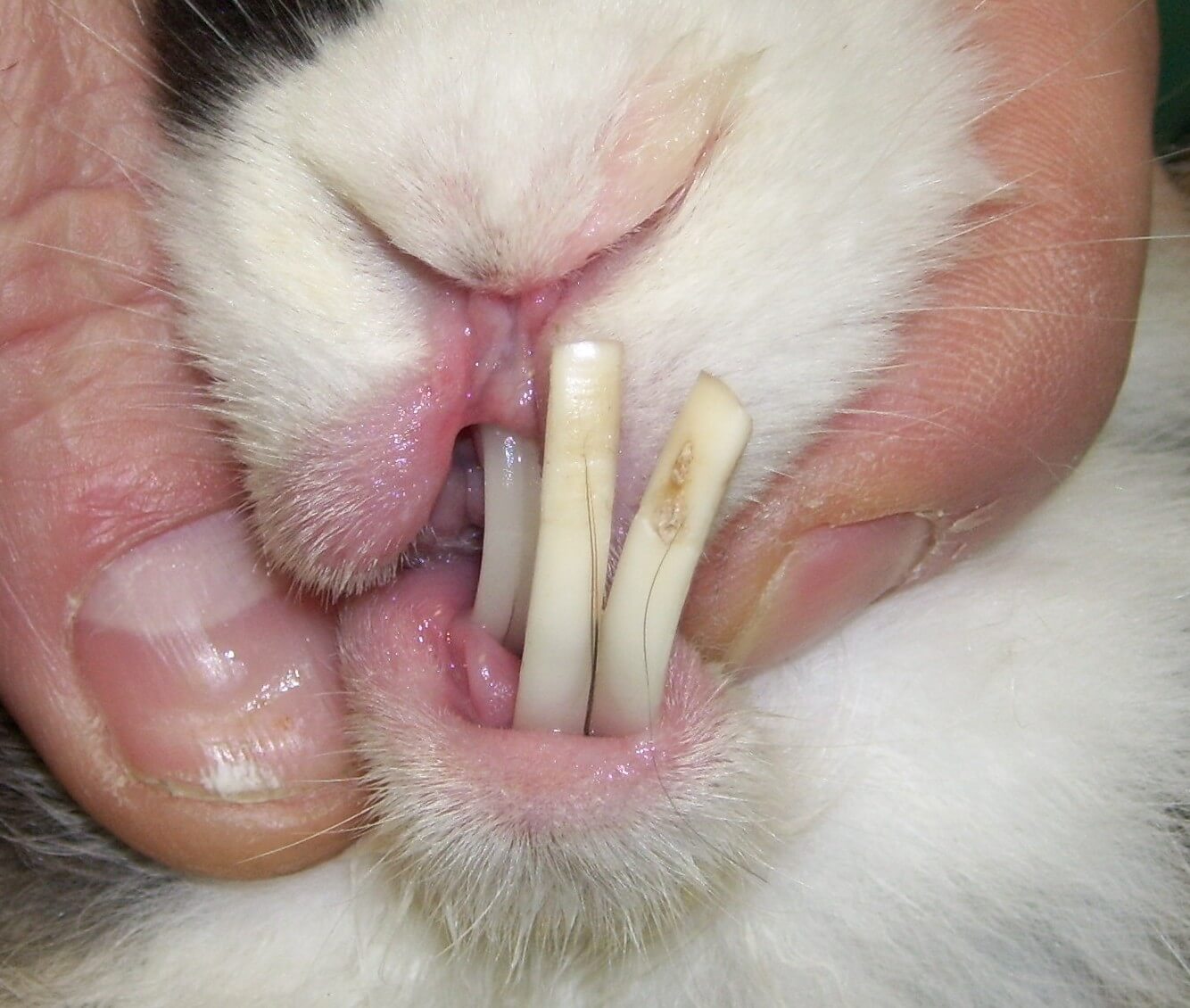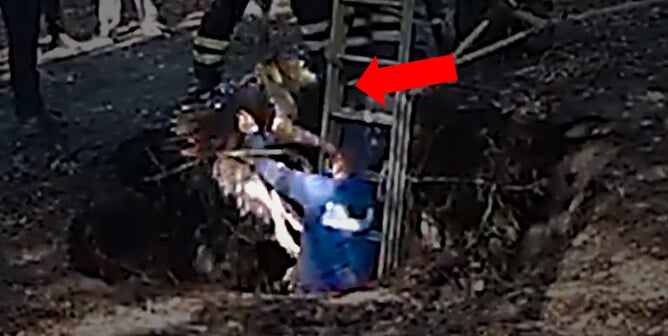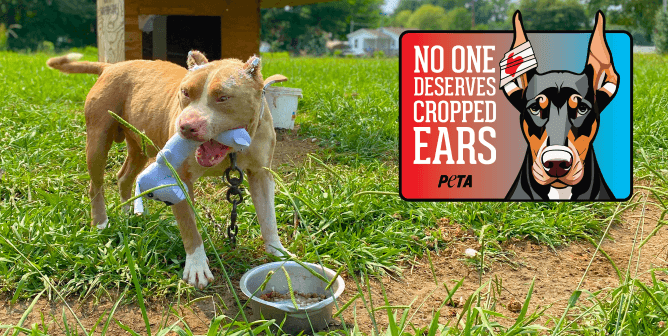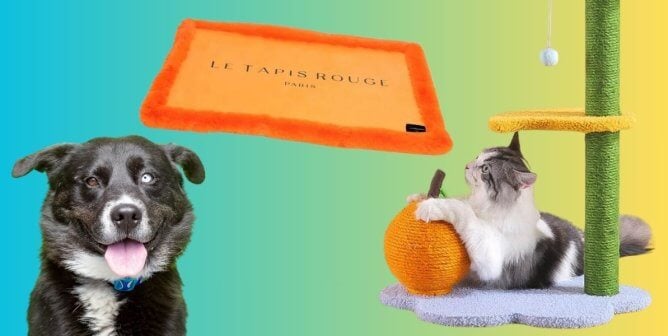Rabbit guardianship is no joke. Caring for these complex animals is as involved as caring for a dog or cat—maybe even more so, since rabbits are prey species and therefore good at hiding illnesses. Knowing your rabbit and their unique personality is a must. And responding quickly to strange behavior means that your rabbit will have a better chance at being treated successfully. For instance, if your rabbit pounces on the bed every morning or waits at the table every night for a treat and then abruptly stops one day, that’s immediate cause for concern.
Most rabbits are comfortable with their routine, and if they act even a little bit off, it could mean that something is very wrong.
Rabbits are creatures of habit, and if they act even a little bit off, it could mean that something is very wrong.
Recognizing when your bunny buddy is lonely, distressed, or sick can be tough, but doing so is crucial to their survival. Don’t be a guardian who lets their rabbit’s health problems go unattended. Rabbits can’t advocate for themselves—they need your awareness and your support.
Is your rabbit sick? If they exhibit any of the symptoms described below, the answer may be “yes.”
1. Stasis
Any longtime rabbit guardian has likely dealt with stasis. It’s one of the most common maladies that affects rabbits. Symptoms vary, but rabbits who suffer from stasis usually are lethargic or are unable to get comfortable because of gas or cramping. Thankfully, it’s also one of the easiest conditions to treat if it’s caught early on, but it can be fatal if it isn’t treated quickly. Digestive issues, stress, and tooth problems are just a few things that can cause stasis. Talk to your veterinarian about getting the necessary emergency supplies to treat stasis at home in case you need to help your rabbit before you can get them to your vet’s office.
It’s also important to find and develop a good relationship with a reputable, rabbit-savvy veterinarian and to take your rabbit for annual or even biannual checkups, especially if he or she is prone to tooth problems.
2. Sore Hocks
When the sole of a rabbit’s foot becomes raw and inflamed, this is called “sore hock”—and there’s usually one main culprit: unsuitable flooring. Wire cages are often to blame and should never be used for rabbits’ housing—they don’t sufficiently support rabbits’ weight and can cause their feet to bow. Flooring made of wood, tile, or linoleum (anything that’s slick) is also not ideal. To avoid sore hocks and other foot problems, provide your rabbit with soft, flexible flooring that will mimic the natural feel of the earth. Obesity, arthritis, and other health conditions can also cause sore hocks. A veterinarian should treat sore hocks—and address the cause of the problem—immediately.
3. Head Tilt
Also known as torticollis or wry neck, a head tilt can be triggered by a number of things. According to House Rabbit Society, a stroke, protozoan infection, an ear infection, cancer, intoxication, and trauma can all cause head tilt in rabbits. The good news is that with proper treatment, many rabbits with head tilt can go on to lead perfectly happy lives. But whether it can be completely fixed can only be determined by a veterinarian. If your rabbit is showing signs of a head tilt, take them to the vet right away.
4. Difficulty Breathing
If your rabbit has the “snuffles,” don’t make the mistake of writing it off as a cold. Rabbits don’t catch human colds. If your bunny friend is sneezing or has a runny nose or runny eyes (especially if the discharge is white in color and gelled), they may be suffering from an upper respiratory infection and need to be seen by a veterinarian right away. There may be other reasons for these symptoms, but following a “better safe than sorry” approach is always best.
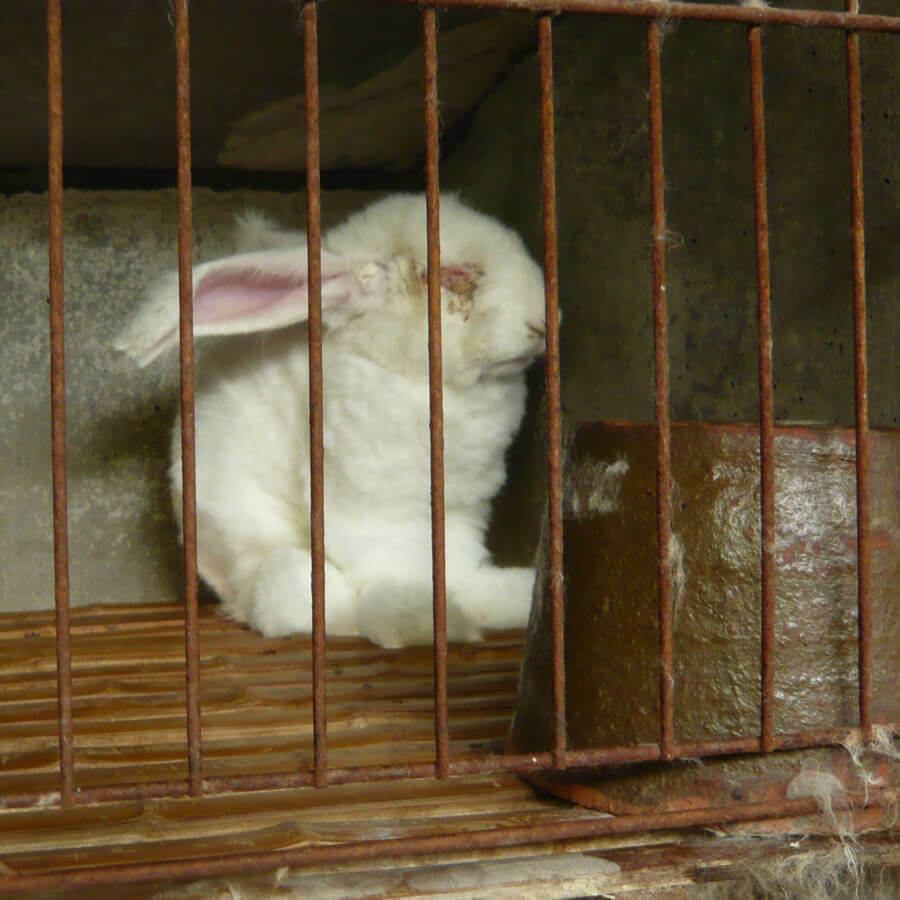
If your rabbit exhibits raspy or heavy breathing or if they lift their nose high in the air to breathe, they may have a lower respiratory infection, a critical illness that requires immediate expert care.
5. Flystrike
Flystrike—also known as myiasis—should never be ignored with any animal. It’s a maddening and painful condition in which flies bite rabbits until they’re bloody and then lay eggs in the wounds, producing maggots who eat away at the dead tissue. The condition is preventable with proper care—always remember that an ounce of prevention is worth a pound of cure.
To prevent flystrike, rabbits should be kept indoors. (Although it’s possible for indoor rabbits to get flystrike, it mostly affects rabbits who live outdoors.) Their living area should always be kept clean. Clean and dry any area in which your rabbit urinates or defecates, and be sure to remove and replace dirty litter or bedding. Check your rabbit’s skin at least daily (and more frequently if the weather is hot) for signs of skin irritation or wounds. If you suspect that your rabbit is at risk of getting flystrike or they have difficulty urinating or produce unusually wet feces, take them to the vet immediately. If not treated quickly, the condition could be fatal. If your rabbit is prone to flystrike, ask your vet about products that you can keep at home to help prevent it.
6. Hairballs
No, hairballs are not just a cat thing. Rabbits can accumulate hairballs in their stomach, which can cause a digestive condition known as gastrointestinal stasis. It’s natural for rabbits to ingest hair while grooming themselves, and if they’re fed a proper high-fiber diet (with unlimited, good-quality hay), the hair goes through their digestive tract easily. But without proper nutrition to aid in digestion, such as a diet without enough fiber, matted hair may collect in their stomach, leading to gastrointestinal stasis. Regularly brushing rabbits can help prevent this. Ask your veterinarian how often you should groom your rabbit companion.
If your rabbit’s stomach is distended or hard, if touching their stomach appears to cause them pain, if they have diarrhea, or if their fecal pellets are unusually small in size or quantity, seek help immediately.
7. Loneliness
Rabbits are social animals. Human interaction is essential for their well-being. Although most rabbits don’t like to be held or cuddled, they do love to exercise and play. Keeping a rabbit constantly isolated inside an enclosure is cruel, and they can become bored and lethargic. So give your rabbit the socialization and space to exercise that they need. Make sure that you provide them with toys to entertain themselves. Toys can be simple and cheap: Try stuffing a paper towel roll or cardboard oatmeal canister with timothy hay that your bunny can roll, chew, and play with.
How do you know if you’re doing your bunny guardian job right? Rabbits will purr (it’ll sound like teeth chattering or light chomping) or “binky” if they’re happy.
8. Overgrown Teeth or Claws
Yes, rabbits’ teeth can become overgrown, which can cause a whole host of health problems. No, you can’t just clip their teeth with nail clippers or rongeurs. Like humans’ fingernails, rabbits’ teeth grow continuously throughout their lives, which means that they require management. The best way to help keep your rabbit’s teeth at a practical length is to feed them a fiber-rich diet of good-quality hay (such as timothy, oat, or rye) and provide them with wooden toys to chew on. Check your rabbit’s teeth at least weekly for signs of overgrowth. Dental problems in rabbits are serious and should be addressed right away by a veterinarian.
Rabbits’ nails grow constantly, too, and need a trim about every six weeks. Generally, it’s advised that a professional (a veterinarian) trim their nails—or you can ask your vet to show you how to use proper guillotine-style clippers so that you can trim your rabbit’s nails yourself at home.
9. Anorexia and Pseudoanorexia
If you notice that your rabbit is refusing to eat or has lost weight, it’s possible they’re suffering from anorexia (a loss of appetite) or pseudoanorexia (the inability to chew or swallow food). Signs and symptoms include fecal pellets that are small in size or quantity as well as halitosis (aka ” bad breath”). According to experts, if your rabbit grinds their teeth and/or hunches, an oral disease (a well-known cause of pseudoanorexia) could be the culprit. If you notice any of these symptoms, contact your veterinarian straightaway. In addition to dental disease, other causes of anorexia and pseudoanorexia can include kidney failure, stomach ulcers, tumors, poisoning, or infectious, respiratory, or neurological diseases—all of which should be addressed immediately.
*****
Clearly, rabbits are not “starter pets” or “Easter gifts.” They require specific foods and stimulating environments and need to be seen regularly by veterinarians who have specialized knowledge of their species. If you’re already a devoted bunny guardian, please, never ignore any sign of their distress.
Are You Ready to Be a Rabbit Guardian?
Rabbits are the third most frequently abandoned animals at shelters. Remember always to adopt—never shop! If you’re looking to share your home with an animal, please visit your local animal shelter and save a life:


